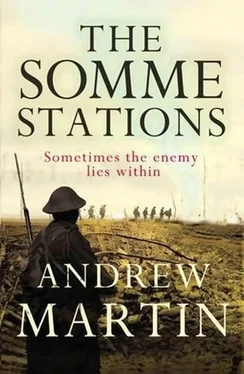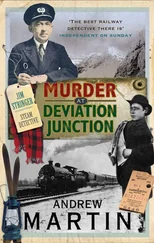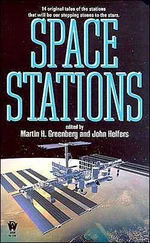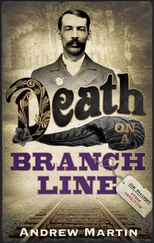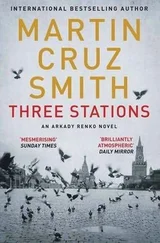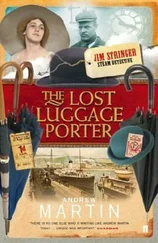When I was towelling down after my own bath (the water was just hot enough to make you wish you’d a bit longer than the regulation minute sitting in it), I glanced over at young Alfred Tinsley lying back in the water. He called out to me, ‘What more could the quality want?’
‘Oi,’ said the bath orderly, ‘out!’
Directly he climbed out, Oamer – still fussing about in the altogether – walked up to the lad and pressed a hot towel on him.
Coming into Albert for the second time, the town seemed to have recovered itself somewhat from its earlier state. But it was more likely that I was over my first shock of seeing it.
I had learnt in my months at the front that a house was not necessarily upright, and that it could count itself lucky if it had no holes at all in its roof. In any row of five houses in the streets around the railway station, as many as four might be upright, but there’d always be one letting the side down. You noticed the beauty of the ones that survived. The top floor was always a front-on triangle, with fancy, stepped brickwork. They were tall and thin, four or five storeys high, and most of the life was lived in the basement, which was partly, as I supposed, because almost any house at Albert might fall down at any time. I mean to say… they’d been through a lot .
Now that the Boche had been pushed back, the town – like Burton Dump – was out of ordinary artillery range, but still within reach of the big guns. The result was that if you went into Albert not knowing the French word for ‘basement’, you soon found it out: ‘sous-sol’. Take any given shop or business premises. The front might say ‘Boulangerie’, ‘Pâtisserie’ or ‘Notaire’, but there’d be a hand-painted sign in addition pointing down and indicating ‘sous-sol’. The whole town had gone underground.
The other words that any Tommy would pick up quickly were ‘vin’ and ‘bière’. I was walking through the town with Dawson and young Tinsley when Tinsley said, ‘I prefer wine to beer. The idea of it, I mean, since I’ve never really drunk it. See here…’ He pointed to a fancy written panel outside one of the upright houses. It gave the prices of the drinks sold within. ‘A bottle of wine’, said Tinsley, ‘is generally one franc and twenty whatsnames…’
‘Centimes,’ I said.
‘… And you get goodness knows how many glasses in a bottle, whereas one glass of beer is a franc – and there’s a lot more wallop in a glass of wine than there is in a glass of beer.’
‘Spoken like a connoisseur,’ said Dawson, who was mooching along behind, hands in pockets. In the washroom, directly after the bath, he’d covered his face in a lather and set about it with a razor. It seemed he’d finally had enough of his not-quite moustache, but when he’d wiped away the soap, it was just as before.
Dawson seemed to be looking for something, and I wondered whether it was the same thing I believed Tinsley to be looking for, namely a place signified by a red light burning low. On the train coming in from Burton Dump, I’d decided – on looking at all the brilliantined hair, the shaving nicks on the chins, and the soap suds hardened into white crusts about the backs of the necks – that such a place was the true goal of every man in the carriage, even the twins.
Of course, most of the blokes in the carriage were not married. I was , and so the question of my own intentions came with complications. Whenever I thought of the red light, and how it might look, and where it might be, I thought of the wife. Best thing would be to have a drink, and see what happened. That’s what I intended to do, anyhow, but we couldn’t seem to find the right spot.
We came out into the main square, where the half-wrecked cathedral stood. On the top of the spire, the Virgin Mary, tilted a few degrees below the horizontal, held the baby Jesus.
‘Famous is that,’ said Tinsley. ‘They have postcards with it on.’
‘Having a lovely time on the Western Front,’ I said.
‘It’s known as the Albert Memorial,’ said Dawson, and when he saw Tinsley’s expression – half believing it and half not – he had to laugh.
We found a basement estaminet just off the Square that looked all right – not red lamps but green ones, which, together with dark blue, none-too-clean tablecloths, gave an underwater look to the place. It seemed to draw quiet types. A couple of privates talked in low voices in one corner; a couple of officers did likewise in another. As we descended the stone steps, a tired-looking woman said, ‘English menu’ in a strong French accent and held up a little blackboard. She looked at us, waiting. The odd thing was that it was all written in French, except for the odd word that stood out in capitals like ‘ENGLISH SHIPS’ which, odds on, was ‘English Chips’, since it went next to ‘Oeufs au plat’.
‘Bonsoir, madame,’ I said, and the woman nodded back. She wanted us to get on with the ordering.
‘What is oeufs au plat?’ asked Alfred Tinsley.
‘Eggs on a plate,’ I said.
‘Where else would they be?’
‘ Fried eggs. So in English it’s egg and chips.’
‘I’ll have that,’ he said, and we all asked for it.
The woman made no move, but nodded. She was still holding up the little blackboard, still looking worn out.
‘For dreenk,’ she said.
The menu said ‘Notre Vins’, then came ‘Vin Blanc 1ff’. Below that was written ‘Cidre’, and no price.
Tinsley said to me, ‘Ask her if she has Vin Supérieur.’
He’d set his heart on this, having seen signs about the town announcing that it was only ten or maybe twenty centimes dearer than the ordinary stuff. I asked the question as best I could, and I could not make out the answer.
We sat down at the table next to the officers. They were only junior officers – one pip and two pips. Two pips was out of the Quinn mould. He was saying, ‘That’s final to my mind… But then again…’
We started in on the wine, which came in a bottle without a label, and without a cork – a dodge that most French barkeepers seemed to think they could get away with. I took a sip, while Alfred Tinsley drank off his glass in one go. He sat back, and said, ‘My eye! Is that what wine’s meant to taste like?’
‘No,’ I said.
Dawson passed me a Woodbine, before offering one to Tinsley.
‘Go on then,’ said the lad, and he set about trying to enjoy a cigarette for the second time in his life.
Dawson re-filled Tinsley’s glass, and the kid knocked half of that back straightaway as well. After taking a draw on the fag, he eyed it as though there was something wrong with it. But it was just the same as all other Woodbines.
‘I think a cigar might be more my style,’ he said.
He seemed determined to go all-out this evening – and in all directions. Then he said, ‘Why does Oliver Butler say all that stuff about Oamer? Making out that he’s, you know, funny? A sort of nancy, I suppose is what he’s saying. He’s so keen to throw blame for what happened that I’m beginning to think he might have done for Harvey himself – him or his loony brothers.’
Watching Tinsley, I was wondering again about the torn number of the Railway Magazine . It was the only thing about him that I couldn’t explain. Tinsley drained his glass, and this time took the liberty of re-filling it himself. ‘Oamer’s brainy,’ he ran on, ‘that’s the only thing different about him. Did you see him coming up on the train? He was reading the fattest book I’ve ever clapped eyes on.’
‘ The Count of Monte Cristo ,’ I said.
Taking another belt of wine, Dawson said, ‘I’ve got a book called The World’s Best Books . It’s awfully good. I’d read about half of it but then the war started.’
Читать дальше
